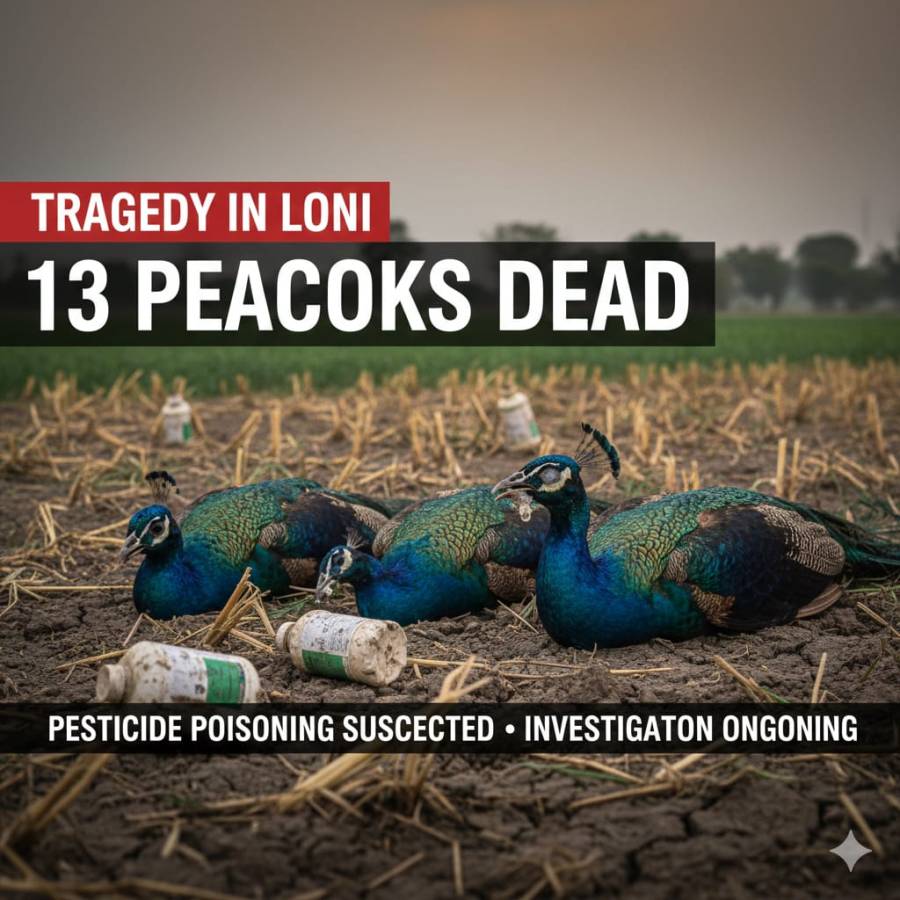
As winter approaches, pet owners worldwide face unique challenges in ensuring the safety and comfort of their furry companions. From the chilly Himalayan foothills to the coastal plains of southern India, winter presents distinct hurdles—be it the cold, dry air or the risks of frostbite. However, with thoughtful preparation and informed decisions, pet owners across the globe can keep their pets healthy and cozy. This insightful guide addresses key concerns, whether you live in the frosty northern regions or milder climates, and how to ensure your pets thrive during winter?
Limit Outdoor Exposure
In regions where temperatures dip below freezing, such as the northern plains or hill stations, it's essential to limit outdoor exposure, especially for small, short-haired, or senior pets. In areas like the plains of Uttar Pradesh or the hilly terrain of Himachal Pradesh, even the hardiest pets can suffer from cold stress, frostbite, and hypothermia. Pet owners should keep walks brief—15 to 20 minutes is ideal—and always monitor pets for signs of discomfort such as shivering, sluggishness, or reluctance to walk.
For tropical regions, where temperatures may be milder but still chilly, like in parts of Maharashtra or Tamil Nadu, it’s still wise to ensure pets are not overexposed to sudden temperature drops, particularly in the early mornings or late evenings. Always clean paws thoroughly after walks to remove any salt or chemicals from roadways that could harm your pet.
Dress for the Weather
While it may not snow in the plains or southern regions, winter can still bring a noticeable chill, especially during the night. Smaller or short-haired pets, like Chihuahuas or Dachshunds, benefit from cozy sweaters, while larger breeds might need a coat on particularly chilly days. In places like Delhi or Srinagar, where temperatures can drop significantly, a well-fitted coat can help maintain warmth.
In the winter months, pet owners can also invest in boots or paw balms to protect paws from rough surfaces, chemical de-icers, or sharp ice. Even in milder climates, a balm or booties can prevent cracks and dryness that can occur from walking on dry, cold surfaces.
Create a Cozy Indoor Environment
For pets that spend most of their time indoors, especially in cities like Bengaluru or Kolkata, ensuring a warm, draft-free space is vital. This can be as simple as placing their bed in a corner away from windows or doors where cold air can seep in. Using blankets or thick bedding can also help insulate their resting spots. Outdoor pets, such as those kept in rural areas or farms, should have insulated shelters that keep them protected from the cold winds. Straw bedding and fresh water that doesn't freeze should be provided to keep pets comfortable.
In places with high indoor heating, like in Delhi during extreme winters, a humidifier can help prevent dry skin and respiratory issues caused by dry indoor air. Always monitor room temperatures to ensure they remain within a comfortable range for pets—ideally between 18°C and 22°C.
Adjust Diet and Hydration
Cold weather increases a pet's energy needs, particularly in active dogs or those that spend time outdoors. In regions like Kashmir, where snow is common, pets that engage in more outdoor play may need slightly more food to maintain their energy levels. However, in warmer areas or for less active pets, portion control is essential to avoid weight gain.
Additionally, pets may drink less water in the winter, but hydration remains crucial, especially in dry, cold areas like Rajasthan. Using heated water bowls for outdoor pets or ensuring access to fresh, unfrozen water at all times can help prevent dehydration. Remember, dehydration can lead to serious health issues, including kidney problems.
Maintain Grooming Routines
In winter, pets need regular grooming to remove shedding fur, dirt, and mats. For long-haired breeds, like the Lhasa Apso or the Indian Spitz, grooming helps maintain insulation. Avoid shaving pets during winter as their fur offers necessary protection from the cold. In regions with harsher winters, regular brushing also helps distribute natural oils to keep their coat healthy and warm.
Be cautious with bathing in winter—excessive bathing can dry out your pet's skin. If you do bathe them, ensure they are thoroughly dried before going outside. If your pet struggles with dry skin, incorporating omega-3 supplements into their diet can help improve coat health.
Beware of Seasonal Hazards
Winter in India brings specific hazards. Antifreeze, commonly used on roads or vehicles in colder regions, is highly toxic to pets. Even in southern states, where temperatures remain relatively mild, be vigilant about storing any chemicals securely and cleaning up spills promptly.
Carbon monoxide poisoning can be a concern, especially in colder regions where heating systems are in use. Regularly check heating systems, install carbon monoxide detectors, and never leave a pet near a space heater unattended.
Recognize Winter Health Issues
As temperatures drop, certain health risks become more prevalent. Hypothermia and frostbite are common concerns in the colder regions of India, such as the northern states and hill stations. Signs of hypothermia include shivering, lethargy, and pale gums, while frostbite may cause discoloration or swelling of the extremities. In such cases, immediate veterinary care is essential.
Community Care
In rural or remote areas, providing shelter and food for stray animals becomes an important community responsibility during the colder months. Organizations, local governments, or pet lovers can collaborate to help stray animals by setting up feeding stations and temporary shelters. In cities, consider contributing to animal shelters or organizing winter donation drives for pet care essentials.
Conclusion
No matter where you live, winter requires extra attention and care to ensure the safety and well-being of your pets. From adjusting their diet to protecting them from the cold and seasonal hazards, proactive pet care will help your pets enjoy the winter months comfortably. Share these tips with fellow pet owners to ensure that pets everywhere can stay happy, healthy, and warm this winter.





















